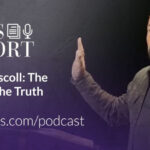John Kasich, a figure with a notable career in American politics, has carved a path from his roots as the grandson of coal miners and immigrants to becoming a prominent voice in the Republican party. His early engagement in politics was marked by a meeting with President Richard Nixon at the young age of 18, followed by his first electoral victory to the state senate at 24. Kasich’s political journey includes nearly two decades in Congress and a resounding re-election as Ohio governor, winning by a significant 30-point margin. His tenure is highlighted by his involvement in drafting the country’s first balanced budget in decades in 1997. Beyond governance, Kasich has also been a television contributor for Fox, authored three New York Times bestsellers, and holds a somewhat unusual distinction of being ejected from a Grateful Dead concert. This article delves into Governor John Kasich’s positions on ten pivotal issues, offering a comprehensive overview of his political viewpoints.
Climate Change: Acknowledging Reality, Prioritizing Economic Balance
Governor John Kasich has publicly stated his belief in the reality of climate change and recognizes it as a significant issue. In a 2012 address, he affirmed his stance on climate change, acknowledging its validity as a problem. However, Kasich has also expressed reservations about the role of the Environmental Protection Agency (EPA) in regulating emissions. Instead, he advocates for a collaborative approach involving states and private sector companies to manage carbon emissions, particularly from coal-burning power plants. More recently, Governor Kasich has emphasized the importance of balancing environmental protection with safeguarding jobs, indicating a nuanced approach to climate policy that considers both ecological and economic factors.
Criminal Justice: Advocating for Rehabilitation and Reduced Incarceration
Criminal justice reform has been a consistent theme throughout Governor John Kasich’s tenure in Ohio. His initiatives include a 2012 law aimed at facilitating employment opportunities for ex-felons and a 2011 bill that prioritizes rehabilitation over imprisonment for individuals convicted of nonviolent offenses. Governor Kasich has been critical of the high number of mentally ill individuals within the prison system, advocating for increased access to mental health treatment as a crucial component of criminal justice reform. His approach suggests a focus on reducing recidivism and addressing the root causes of crime through rehabilitation and mental health support.
Education: Supporting Common Core, Emphasizing Fiscal Responsibility
In the realm of education, Governor John Kasich has been a vocal supporter of the Common Core education standards. He has defended these standards, developed by state education leaders and principals, against criticism, attributing opposition to political motivations. Kasich has been a long-standing proponent of education reform, advocating for the introduction of career exploration at the elementary school level and proposing significant changes to state funding formulas to allocate more resources to underfunded districts and charter schools. Demonstrating fiscal conservatism, Governor Kasich has also utilized his veto power to implement budget cuts in public education spending, reflecting a commitment to controlling state expenditures.
Immigration: Legal Status for Undocumented Immigrants, Pragmatic Compromise
Governor John Kasich has expressed a relatively moderate stance on immigration reform. Speaking at a forum in Iowa, he indicated his belief that undocumented immigrants who maintain a clean legal record should be granted legal status within the United States. While his preferred approach is to offer legal status without a direct path to citizenship, Governor Kasich has acknowledged that a “path to citizenship” might be a necessary element of a comprehensive bipartisan compromise. This position marks a shift from his stance in 2010, when he opposed any form of legal status for undocumented immigrants, highlighting an evolution in his views on this complex issue.
Obamacare: Medicaid Expansion Support, Broader Repeal Stance
Governor Kasich’s position on the Affordable Care Act, also known as Obamacare, is multifaceted. As governor, he made the decision to adopt the Medicaid expansion provision of the ACA in Ohio. He has defended this decision by referencing President Ronald Reagan’s own expansion of Medicaid during his presidency, framing it as a fiscally responsible and compassionate approach. However, Governor Kasich has also called for the repeal and replacement of the remaining components of Obamacare. Despite these calls for broader repeal, reports in late 2014 suggested that Kasich privately acknowledged the unlikelihood of a full repeal of the law, although his staff later sought to clarify these comments.
Social Issues: Moving Past Same-Sex Marriage Debate, Abortion Restrictions
On social issues, Governor John Kasich has adopted a stance that reflects both conservative values and a pragmatic approach to evolving social norms. Following the Supreme Court’s decision legalizing same-sex marriage nationwide, Kasich stated his personal belief in traditional marriage but acknowledged the court’s ruling as settled law, indicating it was “time to move on.”
Regarding abortion, Governor Kasich is a staunch opponent. In 2013, he signed legislation in Ohio that banned most abortions after 20 weeks of pregnancy, with an exception only to protect the life of the mother. This law also included provisions to defund Planned Parenthood and mandate ultrasounds for women seeking abortions, underscoring his consistent pro-life stance. However, in 2015, he expressed reservations about a proposal that would have banned abortions as early as six weeks into a pregnancy, suggesting a more nuanced position within the broader pro-life movement.
Taxes: Income and Corporate Tax Cuts, Consumption Tax Shift
Governor John Kasich has advocated for significant tax policy changes, particularly in Ohio. He has proposed a shift away from reliance on income taxes, suggesting a move towards increased consumption taxes, such as sales taxes. He also supported raising taxes on fracking activities within the state. While these specific proposals did not gain traction in the Ohio legislature, as a presidential candidate, Kasich has voiced support for lowering corporate taxes at the federal level. He has suggested offsetting these corporate tax cuts by eliminating certain corporate tax loopholes, indicating a desire for corporate tax reform aimed at both reducing rates and simplifying the tax code.
Unions and Workers: Limiting Public Sector Union Power
Governor Kasich has taken a firm stance on labor unions, particularly those representing public sector employees. During his initial year as Ohio governor, he championed legislation designed to curb collective bargaining powers for public unions. This initiative faced strong opposition and was ultimately rejected by Ohio voters in a state referendum. Since this setback, Governor Kasich has not revisited this specific issue, but his initial push reflects a broader philosophy of limiting the influence of public sector unions.
Iran and Israel: Concerns over Iran Nuclear Deal, Support for Israel
Governor John Kasich has voiced concerns regarding the nuclear agreement between Iran, the United States, and other world powers. Following the announcement of the proposed deal, his spokesperson conveyed his apprehension about the terms of the agreement. Kasich has demonstrated strong support for Israel, attending Israeli Prime Minister Netanyahu’s address to the U.S. Congress and stating his belief that the U.S. should not exert pressure on Israel to engage in peace negotiations, aligning himself with a generally pro-Israel foreign policy stance.
Islamic State and Iraq: Advocating for Ground Troops Against ISIS
On the issue of combating the Islamic State of Iraq and Syria (ISIS), Governor John Kasich has adopted a hawkish position. He believes that effectively defeating ISIS will ultimately require the deployment of U.S. combat troops on the ground in the region. Furthermore, he has called for the development of a more robust international strategy to confront and combat the terrorist group, suggesting a comprehensive approach involving both military and diplomatic efforts.


